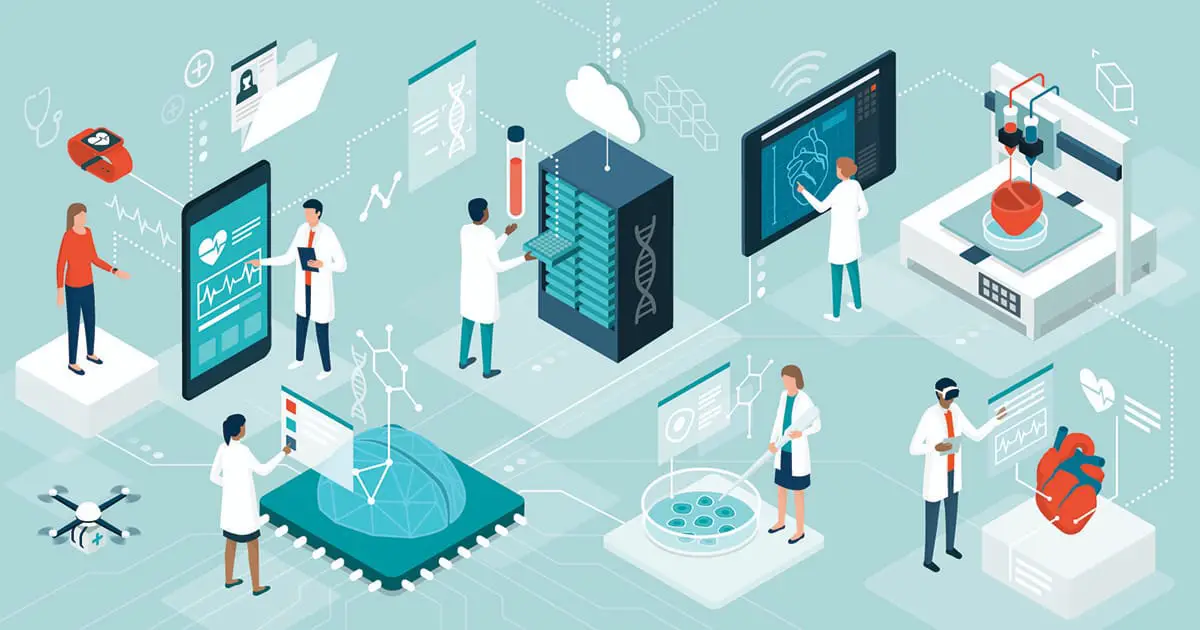This article seeks to portray the current status of Artificial Intelligence (“AI”) in India’s healthcare system and its issues related to data privacy. AI is becoming a major contributor in the health and medical domain, not only increasing its efficiency, but also to gain economic solidity in these sectors in India. Due to this, there comes a deep concern on the extent of its regulation and legislation while using personal data of patients for any other purposes than treatment. The use of AI which increases the continuous exchange of information and data between the patient and the AI service providers raises serious concerns for data privacy, as they are using sensitive personal data of individuals for other purposes like future training, algorithms, advertising, etc. Hence, with big datasets there are serious threats and challenges to the privacy of individuals, which is essential. This is possible with the most important step of democratization of health data and healthcare where the individual will have better access to his/her health information and hence manage his/her own health. This can further be implemented through the use of AI-based technologies, such as wearable bands, glucometers, etc. following a due process. Again, operators of these devices should be strictly regulated through some regulation and legislation, such as the Data Protection Bill, which protect the privacy of data owners. The legislature should ensure the passage of laws after due process, discussion, and participation of people to ensure inclusiveness and safeguard the interest of every individual. The paper tries to suggest measures to use AI in the healthcare ecosystem in a regulated manner so that its use is more of a matter of significance than a controversy. https://www.sciencedirect.com/
Introduction
“The Fourth Industrial Revolution will, after all, transform not only what we do, but who we are. It will affect our identity and all the issues associated with it: our sense of privacy, our notion of ownership, our consumption patterns, the time we devote to work and leisure, and how we develop our careers, cultivate our skills, meet people, and nurture relationships.” With the development of Artificial Intelligence our world has changed drastically in every aspect. John McCarthy first coined the term “Artificial Intelligence” (“AI”) and defined it as “the science and engineering of creating intelligent machines”. AI can also be described as when a machine that maintains the ability to qualify as a human. These AI technologies require the collection of huge data and information related to the specific subject it is working on, in order to build the requisite ability to make decisions. On the other hand, it should be remembered that, the software developers who develop AI have control over these mechanisms, including the data stored in them, its action and reaction. https://nmji.in/artificial-intelligence-powered-healthcare-for-india-promises-opportunities-and-challenges/
In the present digital world, dependence on technology is inevitable, which collects massive amounts of personal data termed as ‘digital data’, which is used by AI devices to upgrade the standard of living. As a result, all our personal data ranging from our preferences, to daily personal interactions, to medical reports, to specific symptoms and habits, etc. are collected, stored, treated, and profiled by AI technologies, which are then used for various purposes for some commercial, development, training, and advertising drives. This particular process of collecting data and its subsequent use exceeds the privacy, confidentiality, and informed consent of the individual. The application of the system of AI in the healthcare sector is though undoubtedly helpful and contributing to serving people at large, thereby adding to the strength of doctors; but its application has also been a serious threat to the privacy of the individual.
AI in the healthcare system largely depends on the health information of individuals, which they have voluntarily or involuntarily shared with healthcare agencies, including doctors, hospitals, clinics, laboratories, etc. All these agencies carry out their tasks with the help of new media technologies. They have created their own databases to store patients’ information. Computer networks and internet communication technologies also allow patients to access their health reports from any location in the world. Patients using new media devices can interact with foreign doctors, and share their test reports. The laboratory of diagnosis and prognosis has become extremely efficient in the realm of the new digital age, helping patients to opt for appropriate treatment. Moreover, contemporary AI enabled wearable fitness bands and mobile applications have added the capability of the digital world to create paths in diagnosis and prognosis. Individuals use health apps and wear trendy fitness bands that measure their heartbeat, calories, location, and physical activities. Everything is being stored online to create a massive database of the same. This way AI has an unprecedented access to all these databases. https://www.drishtiias.com/
However, one cannot forget that information relating to the health of individuals though shared voluntarily is sensitive in nature, as the technology of medical tests is capable of discovering present and future diseases, and to detect genetic traits associated with particular race, caste, ethnicity or religion. For example, artificial intelligence can predict that a person has Parkinson’s disease based on data stored on a computer network and if this data is shared or used for some unauthorized purpose, it would constitute a serious violation of his privacy. The person concerned has every right to prevent AI agents from disclosing such information to anyone. Individuals have a reasonable expectation of privacy that their shared information should be kept confidential for various reasons.
Read Also:
- Artificial Intelligence In Healthcare
- Current Application Of Artificial Intelligence In Healthcare
- Artificial Intelligence In Healthcare – A Revolution In Social Health Care System
- Potential Of Artificial Intelligence (AI) In Healthcare
- Findings And Discussions On Artificial Intelligence (AI) In Healthcare
- Artificial Intelligence (AI) (Online Resource): The Panacea For SMEs In Healthcare
- Main Use Cases Of Artificial Intelligence (AI) In Healthcare
- Artificial Intelligence (AI) In Healthcare In India
- Artificial Intelligence For Healthcare‘
- Challenges And Precautions Of Using Artificial Intelligence (AI) In Healthcare






